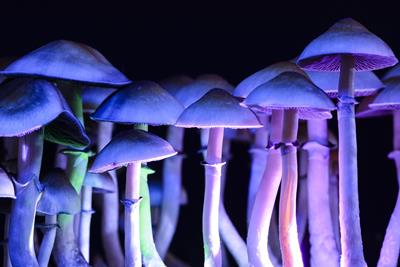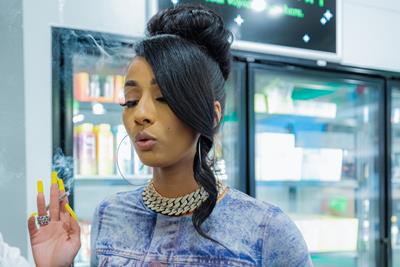
Wednesday July 22, 2020
By Andrew Ward
 420 Culture
420 Culture
While preparing for a recent article, one of my interview subjects hypothesized that psychedelics reform could catch up or lap the cannabis efforts. The idea may seem out there to some, but recent events in both spaces indicate that the belief, at the very least, is worth consideration.
So far, psychedelics reform has reached just a few cities. However, the groundswell of support has the movement reaching hundreds of other American municipalities as of late. With end goals varying from cannabis, many believe the ideal conclusion could be reached sooner than marijuana’s.
At the same time, cannabis continues to advance its cause, with more newcomers possibly joining the ranks come Election Day 2020. That said, the federal government remains a barrier.
We live in an era where we could see both cannabis and psychedelics reform. Which, if either, could come first on the federal level is anyone’s guess. Here are some of the latest on both fronts.
The State of American Marijuana Reform
2020 was slated by many in the space as a year for significant legislative progress. Several states appeared poised to get ballot initiatives on the 2020 ballot. Meanwhile, states like New York thought this would be the year laws would pass through the state Congress.
The COVID-19 pandemic would upend many of these efforts. In-person ballot initiatives were halted due to social distancing, causing some states to refocus their legalization efforts for 2022. In New York, lawmakers who had once hoped to pass legislation, including Governor Andrew Cuomo, conceded that the coronavirus would divert attention and funds from such efforts.

Despite that, numerous NY politicians have renewed a call to legalize. Three state Senators have even proposed cannabis legalization to specifically address the tax losses that COVID has caused. The Governor would pivot his sentiment in the weeks ahead as well. Other states, including Montana, have since advanced their legalization efforts despite the virus.
However, federal opposition remains strong at the top. Despite a growing number of lawmakers on Capitol Hill advocating for reform in various bills, including the MORE Act, SAFE Banking and various other measures, Attorney General Bill Barr has been accused of disliking the cannabis industry and unnecessarily targeting the market through what a whistleblower alleged to be unnecessary antitrust investigations.
Psychedelics Reform Picking Up Momentum
The recent wave of psychedelics reform can be traced to PotGuide's hometown of Denver. The bastion for drug reform kicked off the movement in May 2019 when the city decriminalized psilocybin. Oakland followed suit the month after, decriminalizing psilocybin and other hallucinogenic substances.
Cities like Portland, Chicago, Berkeley, and Dallas would soon have their own discussions about the substances. The movement would continue gaining momentum over the next year or so.

Vermont started the new year off with a bill aimed at decriminalizing psychedelics as well as kratom. Santa Cruz, California, went further by approving its decriminalization bill just a few days into 2020.
More recent examples include New York State, where Assemblywoman Linda Rosenthal introduced a proposal to decriminalize mushrooms. Around the same time, it was revealed in a poll of Washington, D.C. voters would support decriminalization if the question made it onto the 2020 ballot in November.
Will Psychedelics Reform Catch Up to Cannabis?
The wave of reform in both spaces may lead some to believe that the movements are on similar legalization paths. Others, like Co-founder and Director of Unlimited Sciences, Del Jolly, see psychedelics reform rolling out a bit differently while having the same three tracks to access: decriminalization, legalization, and medicalization.
Jolly, who was part of the Decriminalize Denver reform team, told PotGuide that many cannabis entrepreneurs perceive the psychedelic space wrong. “It has become very clear to me that there is a deep misconception amongst cannabis entrepreneurs trying to position themselves towards profit and their lack of understanding of psilocybin in particular,” Jolly explained.
“This will not unroll like cannabis, nor should it.”
Others like Doug Chloupek, CEO of cannabis brand Juva, believe it is presumptuous to think psychedelics will catch up to cannabis reform. While noting it took until 2018 to see cannabis legalization in California, Chloupek said, "That said the world is very different, as is public perception with the utilization of plant-based medicines."
Chloupek discussed how a lack of lab studies hampers psychedelics reform. ”[While] certain psychedelics have shown tremendous medicinal effects, the proper science is still desperately needed to show clinical efficacy.” The CEO added, “Organizations like MAPS have made great inroads, but proper IRB approved research registries are needed to really help move the needle on a federal level.”
Things to Come for Psychedelics in America
Additional lab results could come soon enough. Johns Hopkins University's launched a first-of-its-kind research facility in late 2019, aiming to reinvigorate psychedelics studies. Meanwhile, this past July, a team of Canadian therapists at Therapsil asked federal lawmakers to be allowed to dose themselves to understand proper dosing for end of life patients who are petitioning for legal psychedelics access.
The future of both psychedelics and cannabis reform remains uncertain. Progress indicates that reform efforts are continually gaining traction. However, with federal reluctance and a lack of lab studies, both movements face a tall task in winning over federal lawmakers.
What are your thoughts on the status of psychedelics? Should reform be more similar to that of recreational cannabis? Share your thoughts in the comments below.
Photo Credit: TherapeuticShroom (license)







